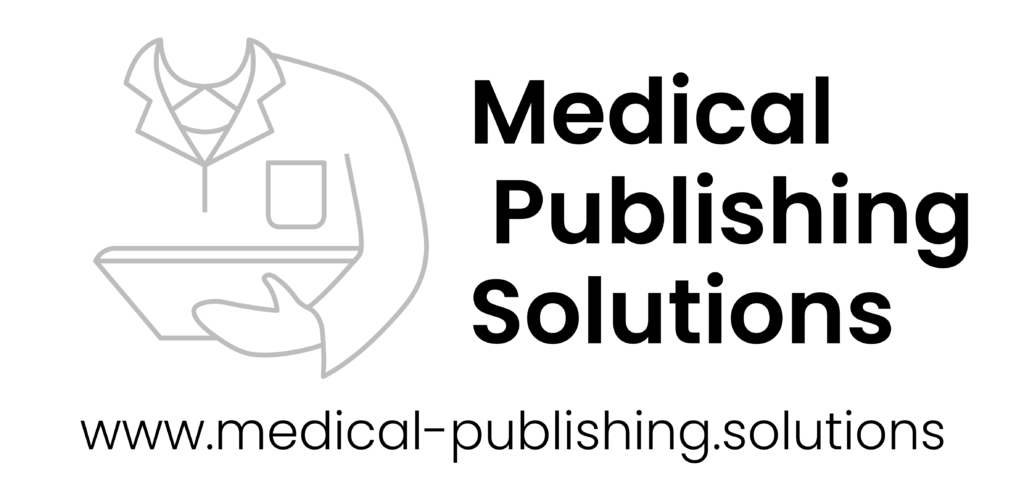XML technology
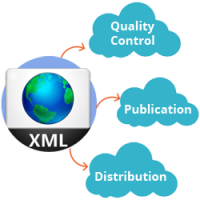
XML is the technology at the core of our publishing solutions. All incoming documents and content are converted to XML; the XML is then converted to all target formats like HTML, EPub or PDF. XML enables the validation of all data and content, which in turn ensures the consistency, completeness and correctness of this data and content.
XML has been the industry standard for the publishing sector for more than 20 years. A comprehensive set of tools and supplementary technologies guarantee the future viability and interoperability of all applications and data.
DOCX → XML → DOCX conversion
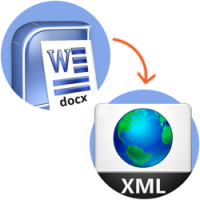
Our solutions support the conversion of DOCX content into XML. The conversion occurs either in a standard XML schema (e.g. Docbook or DITA) or in customer-specific XML dialects. ZOPYX also supports the conversion of DOCX content with user-defined templates into user-defined XML schemas and DTDs. As part of the DOC-to-XML workflow, we generate HTML, which can be used to display the content on the web or as preparation for later conversion to EPUB. The DOCX→ XML conversion is performed by the C-REX conversion service. Our conversion workflow enables the support of XML round-tripping for the regeneration of DOCX from a converted XML document.
Content management

The CMS Plone is a core component of our publishing solutions. Plone is a classic web content management system that was extended by ZOPYX to support the storage of content in user-defined data storage locations (e.g. local file systems, network file systems, XML databases, cloud storage systems).
Plone’s finely-grained access control combined with a flexible workflow system gives you full control over who can access and edit content. Content metadata is stored in Plone, XML, or in a hybrid storage system configured in both Plone and XML.
Plone keeps your data totally secure. As one of the safest content management systems available, it has a superior security record in comparison to its competitors.
Publishing workflows
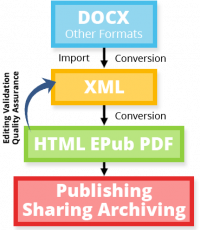
Our solutions aim to bring the entire XML workflow under one roof. They can be used to:
- Upload manuscripts to the content management system
- Convert manuscripts to XML
- Generate PDF and EPub files
- Publish content on the web or via other distribution channels
Of course, it is also possible for all content to be versioned and archived if so desired. Our solutions offer a unified user interface in which all aspects and functions are managed via the web.
PDF generation
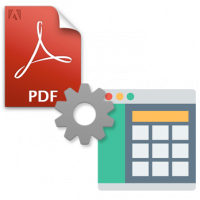
The generation of high-quality documents for printing as PDF is a core functionality of our solutions. The PDF quality is comparable with that of documents created using Adobe Indesign, TeXLaTeX or other similar tools. We produce both traditional print products (e.g. texts with photos) and publications with a strong focus on layout (e.g. brochures).
- High-quality PDF generation
- Styling with CSS
- PDF generation that complies with the PDFA-1a and PDFA-3a standards
- Tagged PDF
- CMYK and RGB colour spaces
- SVG barcodes, QR codes, MathML
- Truetype and Opentype fonts
- PDF forms
- Bi-directional texts
- Raster image processor
- Print marks
- Multi-language documents and hyphenation
- Multi-page tables
- Footnotes, headers and footers
- PDF metadata, PDF comments
PDF generation is performed by an external PDF converter. Depending on the requirements of the projects at hand, we select from a number of high-quality PDF converters including PDFreactor, PrinceXML, Antennahouse Formatter and Speedata Publisher.
Storage



We can incorporate a range of data storage options into our publishing solutions – without compromising the implementation approach. We support the following storage options as standard:
- Local file system, network file system („on-premise“)
- XML databases like BaseX, eXist-DB, Marklogic server, Alfresco
- Cloud-Storage wie AWS S3, Dropbox, Onedrive, Google Drive
- Other storage services can be integrated easily via a user-defined driver
Conversion
Thanks to the cross-media storage of all content and data in the XML format, we can use converters to generate and distribute all standard target formats with relevance for the publishing sector. These include:
- HTML
- EPUB
- PDF (all formats, archive PDF, PDFs according to the „Universal Accessibility“ guidelines)
Interfaces and export

Our publishing solutions based on the Plone CMS enable the export of data and content to third-party systems. In addition, data and content can be made available via well-defined interfaces (e.g. web services, REST services) and used by third-party applications like apps.
Open platform
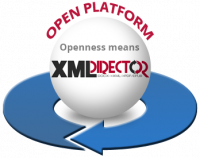
Our solutions are open solutions that offer easy integration with other systems and third-party applications.
We love solutions based on standards. In addition, almost all our components are available as open source (with the exception of commercial components, customer-specific extensions or code protected on legal grounds). Most of our components are published in public repositories like Github or Bitbucket and can be adapted by you, by us or by another service provider. You avoid vendor lock-in and can access the entire code base (except for the commercial converters) at any time if you so wish.
Openness and transparency are important factors for the success of larger-scale publishing projects. In particular, such projects require transparent pricing arrangements and the involvement of the customer in all phases of the project (agile project development).
